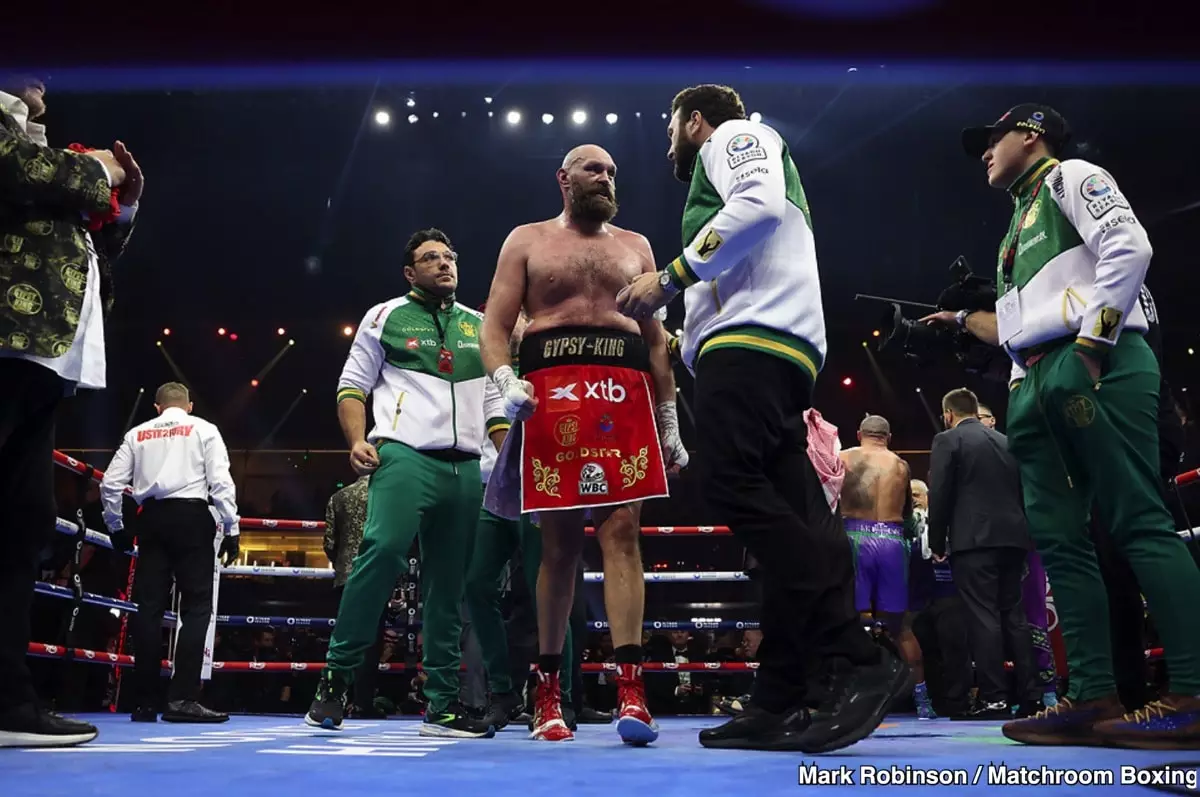Tyson Fury, once hailed as a titan of the heavyweight boxing division, experienced a sobering reminder of the realities of professional boxing during his rematch with Oleksandr Usyk on December 21st in Riyadh. The bout marked a significant dip in performance for Fury, who lost by unanimous decision, with all judges scoring the fight 116-112 in favor of Usyk. This article takes a closer look at Fury’s decline, analyzing how age, strategy, and training contributed to an underwhelming performance that left fans and pundits alike questioning his future in the sport.
The Performance Disparity: Fury vs. Usyk
Fury’s performance in the rematch starkly contrasted with his previous fight against Usyk, highlighting a downward trajectory that cannot be ignored. Watching the rematch, it was evident that Fury lacked the agility and power that once defined his presence in the ring. He seemed weighed down, not just by the physical toll of the fight but perhaps also by the expectations he could not meet. His movements were often labored, and he struggled to engage effectively with Usyk, landing minimal shots throughout the fight.
Fury’s earlier triumph against Wladimir Klitschko in 2015 showcased his speed and tactical finesse; however, the wrestler-like approach he adopted in recent years failed to yield the desired results against an opponent as agile and skilled as Usyk. This rematch served as an alarming reminder that even former champions can fall victim to the passage of time, with Fury’s age and added weight being factors that may have hindered his performance.
One of the most glaring issues in Fury’s approach during the rematch was his blatant underestimation of Usyk’s speed and stylistic advantages. Attempting to rely on size and weight itself can be a double-edged sword in boxing. In his fight against Deontay Wilder, Fury succeeded with this tactic, leveraging his mass to overpower his opponent. However, Usyk showcased the futility of this strategy, darting in and out of Fury’s reach while scoring effectively with combinations.
Fury’s nullified strategy became more apparent as the fight progressed. When he resorted to grappling in an attempt to tire Usyk out, he found himself on the receiving end of swift and punishing counterattacks. The very approach that had been his forte in earlier bouts proved detrimental, underscoring how critical adaptability is in the ring.
Fury’s corner, led by trainer SugarHill Steward, also played a significant role in the disastrous outcome. Effective coaching is paramount in boxing, especially when a fighter is struggling. Throughout the later rounds of the match, it became increasingly clear that Fury needed to shift his strategy and press the action. Yet, there was a troubling lack of urgency from Steward, who appeared to throttle any encouragement for a desperate stand in the championship rounds. This hesitance not only compromised Fury’s chances for a comeback but also called into question the overall efficacy of his coaching.
Had Fury been more engaged in the fight, or had Steward forced him to confront the precariousness of his situation, the outcome may have been different. Thus, the effectiveness of a trainer can have profound implications in the heat of competition, emphasizing that communication and adaptability are essential components in any worthwhile training regimen.
As discussions swirl around his future prospects, the likelihood of Fury’s retirement looms larger, especially if he is to take on Anthony Joshua in a potential series of matches. Yet, the question remains: can Fury recapture the essence of his former self? The landscape of heavyweight boxing continues to evolve, and at 36 years old, making a return to elite form may be an uphill battle.
Tyson Fury’s rematch with Oleksandr Usyk signifies more than just a loss on his record; it serves as a wake-up call regarding the inevitability of aging in sports and the importance of adaptive strategy and coaching. Whether or not Fury hangs up his gloves after his upcoming bouts still remains uncertain, but he is undoubtedly at a crossroad in his career that may redefine his legacy in the boxing world.


Leave a Reply